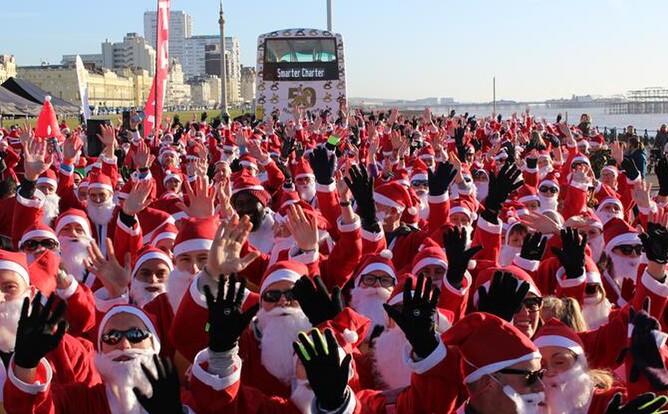Can the taxman/lady really be like Father Christmas and not the Grinch?
The good news is that yes the taxman/lady can be like Father Christmas in respect of your Christmas Party expense and below I explain how. In straightforward and importantly non-accounting terms this is because you can potentially get tax relief for the cost of the party, a refund of any input VAT incurred on this event and thankfully this Christmas party expenditure is not treated as a taxable benefit for you or your employees
So now to the accounting stuff. The combination of a possible VAT input claim, Corporation tax relief and avoiding any benefit in kind (‘BIK’) taxation consequences would result in HMRC effectively giving a limited company back 32.5% of Christmas party expenditure of up to £150 per head.
This high percentage contribution is achieved because I have assumed that the limited company business is:
VAT registered (but not on the Flat rate VAT scheme or partially exempt) and so recovers £25 input VAT on a £150 per head Christmas party at a VAT registered business
that no employee BIK tax charges are incurred by either the employer or employee attending the party and
that by spending this £125 (net of VAT) per head the company pays £23.75 less Corporation tax (ie the current 19% Corporation Tax rate for those companies with taxable profits of £50k or below). For my more successful clients with taxable profits above £50k the tax benefit will be even higher at the marginal tax rate of 26.5%.
I set out below the explanation as to how the above three taxation benefits can be achieved for a Christmas Party (although these 3 benefits could also be achieved at any annual event – see below). I also briefly touch on some of the taxable benefit, Corporation Tax and VAT issues that can arise with all entertaining but I would suggest that you contact Afresh for more detail in this area as this blog is only Christmas Party focused.
Corporation tax relief on staff entertaining
The good news is that the general principle is that all staff entertaining is tax deductible for Corporation Tax in the same way that salary costs are. There are, however, specific rules that need to be considered where the money spent on staff at an entertaining event where clients are present could be considered to be business entertaining. Sadly business entertaining is not an allowable expense for Corporation Tax and you are also unable to recover the input VAT on such expenses.
As the whole area of entertaining and travel and subsistence is a complicated one in the sense of what is and what is not allowable as a tax deduction and what tax consequences there could be if treated as a benefit, I suggest you give Afresh a call if you are unclear on various aspects.
Finally, please note that if you are a sole trader or partnership and you have employees (ie it’s not just you in the business) then you can also obtain tax relief for the entertaining of those staff members.
When is an employee taxed on entertaining provided to them?
The bad news is that when staff enjoy entertaining from their employer then the financial cost of that entertaining is considered by HMRC to be a benefit of employment and so will result in a tax charge to both the employee and employer unless certain criteria are met or a PAYE settlement agreement is put in place by an employer to prevent tax on the employee (ie the employer suffers all of the BIK tax consequences). The principle behind HMRC’s stance being that if say £100 is spent on entertaining staff then that should be considered the same as if an employee had received £100 in salary from the employer (albeit there will be no employee national insurance deductions in relation to the £100 of entertainment spend so slightly less overall tax for the employee there).
You will appreciate that if an employee subsequently receives a tax bill/cost of previously attending a work party the goodwill achieved by hosting that party could quickly be lost by the employer and that is why staff entertaining policies and costs should be carefully thought through.
Please contact Afresh if you want to talk through options that may be available (such as trivial benefits exemption) to ensure that this negative impact on employees is removed.
However, one piece of immediate good news is that one of my three assumptions underlying my claim that the taxman/lady can be like Father Christmas is that a Christmas party could meet the criteria to avoid any tax benefit consequences for both an employer and an employee if it meets HMRC’s ‘annual event exemption criteria’.
What is the annual event exemption?
If the criteria is met then up to £150 per head can be spent on an annual event and this would not be taxable as a benefit in kind on either the employee or employer.
The £150 per head figure is inclusive of VAT and is calculated by adding up the total cost of the annual event and dividing by the number of people attending. This number of attendees can include an employee’s plus one.
To obtain the annual event exemption all employees must be invited to attend the annual event but if you have different locations or departments then as long as that invite is extended to everyone in those separate departments or locations then the exemption is still available.
To get the exemption it has to be an annual event so could also be a summer bbq for example. So you could not, therefore, get the benefit of this exemption if you had a party to celebrate 10 years of the firm being in existence or simply took all staff out for Friday beers. Those two events would just be straightforward staff entertaining and could get both an input VAT reclaim and Corporation Tax relief but would not get this annual exemption benefit as so there would be a resulting BIK tax charge if they did not meet the criteria for trivial benefits exemption mentioned earlier.
The £150 per head annual event exemption does not have to be for just one annual event and so you could, for example, provide both a summer bbq and a Christmas party and get the maximum available benefit if the total combined cost of both events came to £150 per head (or less).
The £150 is an exemption not an allowance that can simply be deducted from the total spend and so even if just a penny more than £150 is spent then there is no exemption benefit at all. As an example, if the total cost of two annual events in a year was £151, with £91 spent on one event and £60 on the other then you could only claim the exemption relief on one of the events and you would of course choose the one with highest cost of £91.
Unfortunately you cannot claim the benefit of this annual event exemption if you are simply a self-employed business with just you as the only worker because in such a case you have no employees.
Getting back the VAT cost of your Christmas party
You could also claim back the VAT element of your Christmas party expenses for employees (but not their plus 1s) because this is then deemed to be goods or services that are for a business purpose. If, however, the plus 1s were to make a small contribution to the cost of the event then all of the input VAT could be recovered as long as output VAT was charged on the small contributions received from the plus 1s.
If only directors and/or their partners attend an event then the goods/services are not deemed to have been used for business purposes and so unfortunately no VAT is recoverable. This inability to recover VAT input for entertaining also covers the situation where there are only one or more directors in a company with no employees.
In Summary
Have an amazing Christmas party and keep the cost per head below £150 to obtain the maximum tax relief benefit available.
As always if you have any questions on the above then please reach out to me at Afresh and I will be very happy to help you.



